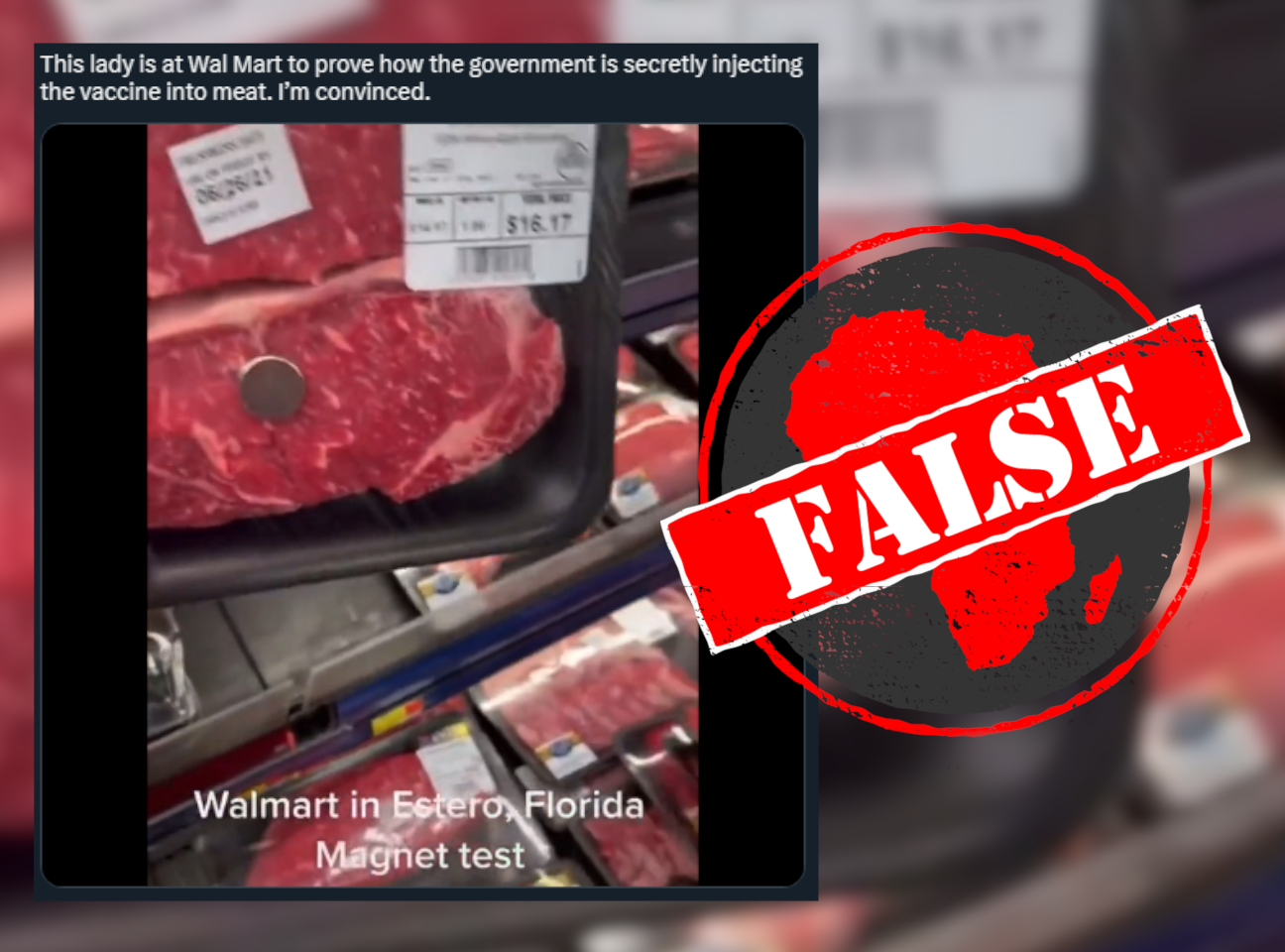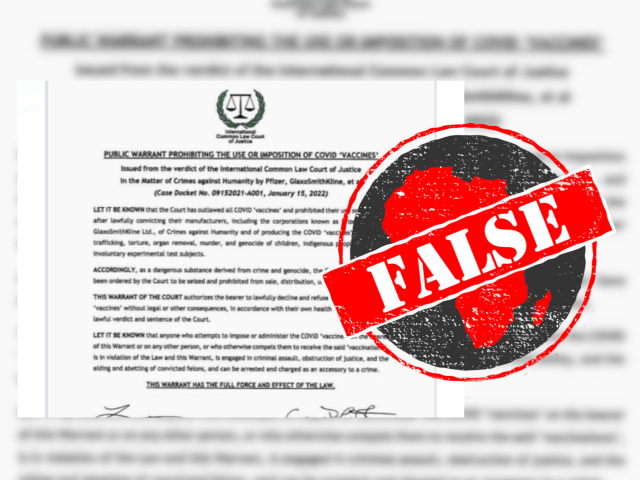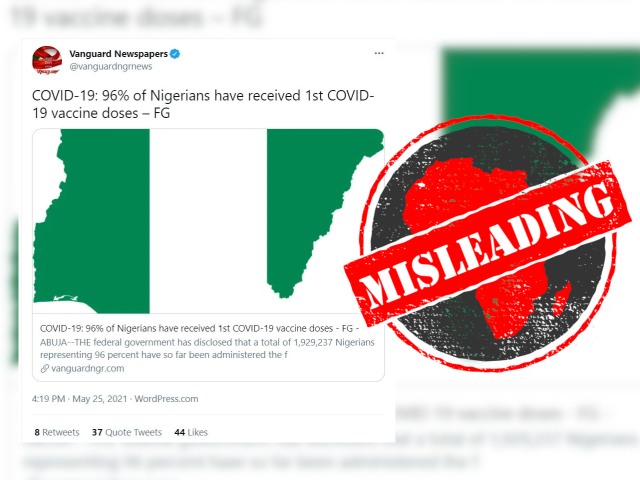IN SHORT: No vaccines – including ones against Covid-19 – cause the vaccinated to become magnetised, whether human or animal. And there’s no government plot to inject meat with Covid-19 mRNA vaccines, despite persistent rumours to this effect online.
A video with over a whopping 28 million views has been doing the rounds on Twitter.
In the video, the person recording walks towards the meat aisle in a shopping centre. The text in the video reads “Walmart in Estero, Florida; Magnet test”.
“I am at Walmart, and I am going to be doing the magnet test,” a voice can be heard saying in the video. The person then sticks what appears to be a small round magnet on a pack of steaks.
Walmart is a US-based multinational retail corporation, most associated with its large grocery and retail stores.
One tweet posting the video reads: “This lady is at Wal Mart to prove how the government is secretly injecting the vaccine into meat. I’m convinced.”
The video and caption allude to the viral and widely debunked claim that mRNA vaccines are being injected into food supplies.
The most well-known mRNA vaccines are the Pfizer and Moderna Covid-19 vaccines. This type of vaccine teaches our cells how to make a protein (spike proteins in the case of the coronavirus) to trigger an immune response to the virus.
The same claim has also been posted on Facebook here and here.
But is “the government” really “injecting the vaccine into meat”? We investigated.

Claim that vaccines cause magnetism is old – and false
In 2021, Africa Check debunked the claim that coronavirus vaccines can “make you magnetic”.
We explained that for metal objects to be able to stick to a vaccination site, the ingredients of the vaccine would have to have a metal base. They don’t.
The ingredients in mRNA vaccines, like Pfizer and Moderna’s, include the mRNA, fats, salts and a small amount of sugar.
The Centers for Disease Control and Prevention (CDC), the US national public health agency, has previously said that there are no metals in these vaccines.
“They also do not have any manufactured products like microelectronics, electrodes, carbon nanotubes or other nanostructures, or nanowire semiconductors,” the CDC added.
The US Department of Agriculture told fellow fact-checking organisation AFP that the magnets may seem to stick to the meat “due to the texture, angle or moisture of the product”.
“However, this does not mean that there is metal in the meat or poultry,” they said.
Vaccines in livestock are important to prevent disease
Although there is no evidence that mRNA vaccines have found their way into meat or other food supplies, livestock do receive specific vaccines to prevent disease.
Africa Check previously reported that widely used examples of livestock vaccines include the bovine viral diarrhoea vaccine in cattle and the anthrax vaccine in sheep.
But eating an animal that has been vaccinated does not have any effect on immunity against the same disease.
Timothy Mahony, of the Queensland Alliance for Agriculture and Food Innovation's Centre for Animal Science in Australia, told AFP that our digestive tracts are designed to break down large molecules found in food to absorb them. This includes DNA, proteins and carbohydrates.
Reuters has also made the point that one dose of the vaccine could not cause a magnetic reaction, even if the claim were true.
Republish our content for free
For publishers: what to do if your post is rated false
A fact-checker has rated your Facebook or Instagram post as “false”, “altered”, “partly false” or “missing context”. This could have serious consequences. What do you do?
Click on our guide for the steps you should follow.
Publishers guideAfrica Check teams up with Facebook
Africa Check is a partner in Meta's third-party fact-checking programme to help stop the spread of false information on social media.
The content we rate as “false” will be downgraded on Facebook and Instagram. This means fewer people will see it.
You can also help identify false information on Facebook. This guide explains how.





Add new comment